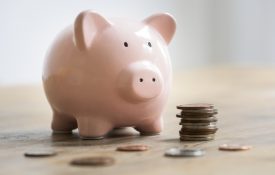-
New evidence-based policy team in Washington, DC hiring psychological scientists
A new scientific team in the Executive Office of the Mayor of Washington, DC is hiring psychological scientists, data scientists, and others, with a September 19 deadline. This new team, called The Lab @ DC, was founded and is directed by David Yokum, formerly of the U.S. Social and Behavioral Sciences Team and GSA Office of Evaluation Sciences, who spoke at the 2016 APS Convention on ways that psychological scientists can get involved in day-to-day governance.
-

The Psychological Pros and Cons of Connectivity
A study of employees in South Africa indicates that people generally view their experiences with smart phones, emails, and wireless networks with more positivity than negativity.
-
A Good Mood Is a Good Motivator
IYou need to alphabetize those files, transcribe last week’s meeting, and then look up some tax codes, but actually motivating yourself to take care of these tedious tasks can be a real challenge. According to new research from APS Fellow James J. Gross (Stanford University) and colleagues, people are much more likely to take on boring, unpleasant tasks when they’re in a good mood. Using a smartphone app to gather data, Gross and colleagues were able to monitor the moods of over 28,000 people in real time across an average of 27 days.
-
Stereotypes Skew Our Predictions of Others’ Pains and Pleasures
Every day, millions of people – including senators, doctors, and teachers -- make consequential decisions that depend on predicting how other people will feel when they experience gains or setbacks. New research looking at events ranging from college football games to US elections shows that our predictions about others are less accurate when we have information about the groups they belong to, such as which political party or sports team they’re rooting for. This research suggests that our reliance on stereotypes about social groups interferes with accurately predicting how others will feel.
-
Experience Buying and Selling Reduces Financially Costly Biases
When it comes to decisions about buying and selling, businesses are supposed to use evidence and observations about the market for goods to make profitable decisions. In classical economics, it’s assumed that people make financial decisions based on rational rules of thumb—buy low, sell high, diversify portfolios, that kind of thing. But the reality about how we make financial decisions appears to be much more complicated than simply assessing the rational value of goods.
-

Paying Do-Gooders Makes Them Less Persuasive
People who receive a financial incentive to raise money for a charity they care about are actually less effective in soliciting donations, even when potential donors have no idea that incentives were involved.

